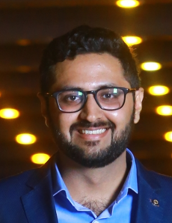Exploring Human-Centered AI in Healthcare: Diagnosis, Explainability, and Trust
Artificial Intelligence (AI) is a thriving area of research in healthcare. A significant amount of progress has been made with advancements in machine learning (ML) and in deep learning (DL). Nevertheless, not all of the research advancements in DL and ML are applicable in the healthcare field. Only a narrow sets of AI solutions are actually deployed in medical infrastructures or are actively used by medical practitioners. There are various reasons for this which include the cost and difficulty of developing AI applications in a human-centered way, because AI systems are often highly complex and less trustworthy than is needed in healthcare situations, and do not adequately incorporate humans in the loop. ML and DL features only add to these difficulties, Questions of explainability for the users (practitioners) are also important and difficult to ensure in medical care when explanatory needs vary between user groups and when ML and DL often work in blackbox ways.
In this workshop, we aim to address the questions relevant to human-centered AI solutions associated with the healthcare domain by exploring different human-centered approaches for designing AI systems and using image-based datasets for medical diagnosis. We aim to bring together researchers and practitioners in AI, HCI, healthcare, etc. and expedite the discussions about making usable systems that will be more comprehensible and dependable. Findings from our workshop may serve as ‘terminus a quo’ to significantly improve AI solutions for medical diagnosis.
Workshop Topics
The goal of this workshop is for participants to explore various approaches of Human-Centered AI and to develop a strategy for future scientific investigations on healthcare solutions. We will use a cross approach, gathering different points of view together to discuss the numerous benefits and drawbacks of such innovations. We would also like to learn from other fields and approaches, that are developing and using AI with visualizations in similar contexts with a human-centered approach.
We hope to address the following themes and questions but are not limited to:
Workshop Themes:
- Human-Centered-AI for medical visualizations
- Physician-in-the-loop for HAI
- Explainable AI in healthcare
- Trust and fairness issues of AI in healthcare
- Ethics in AI for healthcare
- Security and privacy in medical AI
Research Questions:
- What are the existing human-centered approaches for designing an AI-based medical diagnosis?
- How are end-users integrated into the development process?
- How is it possible to make AI decisions comprehensible and transparent to the end-user?
- What are other examples/ use cases, in which image-based detection/ diagnosis is done?
- What is the role of visualization in XAI?
- How to balance between performance and explainability for AI in healthcare?
Organizers
Mentors
Volkmar Pipek
is a Professor for Computer Supported Cooperative Work and Social Media with the Institute for Information Systems at the University of Siegen, Germany. He currently chairs to the board of trustees of the International Institute for Socio-Informatics (IISI). He has widely published books and articles in CSCW, with a specific interest in infrastructuring. He is also the co-leader of the project "INFInfrastructural Concepts for Research in Cooperative Media" at the Collaborative Research Centre 1187: Media of Cooperation and the leader of the Project PAIRADS, which is a research project in the field of the integration of artificial intelligence in radiology at the University of Siegen.
Richard Harper
is a Professor of Computer Science and Director of the Institute for Social Futures at Lancaster University. He is a Fellow of the IET, Fellow of the SIG-CHI Academy of the ACM, Fellow of the Royal Society of Arts, and Visiting Professor in the College of Science at the University of Swansea, Wales. His research is primarily in Human Computer Interaction, though it also includes social and philosophical perspectives. His research on trust in HCI has ranged from explorations of file abstractions, the role of trust in the self, and how trust is a taken for granted feature of interaction. He has written 13 books, including ‘Trust, Computing and Society’ (Ed. CUP, 2015) the IEEE award winning ‘Myth of the Paperless Office’ (MIT: 2003)); and ‘Choice’ (Polity: 2016). He holds 26 patents, including ones for new cloud-based interaction devices (such as the ‘Cloud Mouse’), new secure data stores and lightweight mobile phone data exchange protocols. Prior to joining Lancaster, he was Principal Researcher at Microsoft Research.
Yunan Chen
is an Associate Professor of Informatics in the Donald Bren School of Information and Computer Sciences at the University of California, Irvine. Her research interests lie at the intersection of human-computer interaction (HCI), computer-supported cooperative work (CSCW), and health informatics. She is interested in data-driven technologies and human-centered AI for consumer health. Currently, she serves as Director of the Undergraduate Minor Program in Health Informatics, Vice Chair of Undergraduate Affairs at Department of Informatics, and Co-Director for the Health and Information Lab.
 Sun Young Park
Sun Young Park
is an Associate professor at the University of Michigan in the Stamps School of Art and Design and the School of Information. Her research lies at the intersection of Health Informatics, Human Computer Interaction (HCI), Computer Supported Cooperative Work (CSCW), Participatory Design, and Design Research. Her research uses design ethnography to study patient engagement, patient–provider collaboration, patient-centered health technology, and technology adaptation. Her work has been awarded by the National Science Foundation (NSF) and the Agency for Healthcare Research and Quality (AHRQ).
Miria Grisot 
is an Associate Professor at the Department of Informatics, University of Oslo. Her main research interests are in the areas of information systems innovation, complexity and socio-technical systems, and organizational change, specifically in healthcare. She is engaged in research on AI in context. She is affiliated with the AI4users project addressing the “black box” problem contributing to the responsible use of AI for the digitalisation of public services. She is a member of the Association of Information Systems. She has worked mainly with an Information Infrastructure perspective, published in JAIS, CSCWJ, JSIS, SJIS.
Field Partners
Astrid Chow 
is a Principal Product Designer and Strategist building the UX Design and User Research practice at Eleanor Health, a healthcare startup that focuses on substance use disorders, alcohol use disorders, and mental health. Astrid serves as a VP board member for the User Experience Professionals’ Association (UXPA) Boston Chapter. Additionally, she is a frequent guest speaker and panelist on the topic of AI & Design Ethics at events such as the HFES Health Care Symposium, Connected Health conference, ACM CHI and CSCW conferences, and O’Reilly’s AI Conference. She is teaching an elective course on Design Ethics in Practice for the University of Washington MHCI+D program.
Nils Blaumer 
is the managing director of Gemedico GmbH. His research interests are in workflow automation and digitalization of health processes. His current research includes the detection of prostate carcinomas in MRI images with the help of AI in order to considerably facilitate the daily routine of radiologists.
Research Associates
 Aparecido Fabiano Pinatti de Carvalho
Aparecido Fabiano Pinatti de Carvalho
is an Associate Researcher at the Institute of Information Systems and New Media and Deputy Director of the Chair of Computer Supported Cooperative Work and Social Media, University of Siegen (Germany). His interests span human-computer interaction (HCI), computer supported cooperative work (CSCW), practice-centred computing, artificial intelligence (AI), software accessibility, cyber-physical systems, mobile and nomadic work, and informatics in education. The focus of his research is on technologically mediated human practices, more specifically on the understanding on how practices can help identifying the design space of new and innovative technologies, and how they can shape and be shaped by their usage. He has published several articles on topics related to these fields of research in prestigious international conferences.
 Nazmun Nisat Ontika
Nazmun Nisat Ontika
is a research assistant at the chair of CSCW and social media at the University of Siegen. Her research interests of late include Human-computer Interaction, User-Centered Technology Design, Child Computer Interaction, Virtual and Augmented Reality for better Accessibility and Usability. Her current research includes Human-Centered Artificial Intelligence in Radiology.
Sher ee May Saßmannshausen
ee May Saßmannshausen
is a research assistant at the chair of CSCW and social media at the University of Siegen. Her research interests are in the field of Human-Computer-Interaction and Human-Centered-AI in the context of healthcare. Her current research includes User Experience Design for technologies like Augmented Reality or Artificial Intelligence.
Hussain Abid Syed
is a Ph.D. scholar at the chair of CSCW and social media at Siegen University. His research interests are in crisis informatics, infrastructures, explainable AI and human centered AI. His current research includes exploring the phenomena of organizational resilience and infrastructuring in small and medium enterprises and developing lightweight socio-technical solutions using technologies like service-oriented architecture, rest APIs and data science pipeline.
© Copyright ECSCW2022_Ontika et. al.


